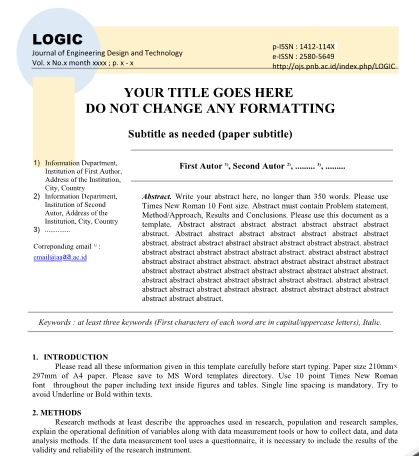Analysis of Leakage Test Results on Flange-Gasket Piping System Simulator Device
Keywords:
Fluid leaks, centrifugal pumps, fluid pressure, bolt-nut tightening torqueAbstract
Fluid leaks in piping installations often occur in the industrial sector which is detrimental due to the selection of gasket materials, flanges, and improper tightening torque of flange bolts. The fluids that are flowed can be clean water, palm oil with a fatty acid content at an acidity level (pH) of around 4, oil, solutions with a certain pH or fuel. The purpose of the simulator device analysis is to obtain data on the level of tightening torque of bolts-nuts on 1 inch pipe flanges-gaskets and the volume of leakage. The analysis method includes setting the working pressure of the fluid on the globe valve at 1 Bar, 1.3 Bar, and 1.5 Bar on the flange-gasket piping system simulator device, measuring the lowest tightening torque at which the fluid starts to leak to the highest at a condition where there is no leak at all, and two-way Anova analysis on the distribution data. The results of the study showed that the lowest bolt-nut tightening torque at 2 Nm for three M8 bolts-nuts as flange-gasket pair locks resulted in an average fluid droplet leakage of 120 ml/hour and at a torque of 4 Nm the leakage level was about a quarter of that, namely 36 ml/hour and finally at a torque of 5 Nm there was no leakage at all. Implications in industries that use fluid flow with sufficient tightening torque of nuts-bolts on flanges-gaskets can reduce-stop losses due to leakage that occurs in their piping systems.








